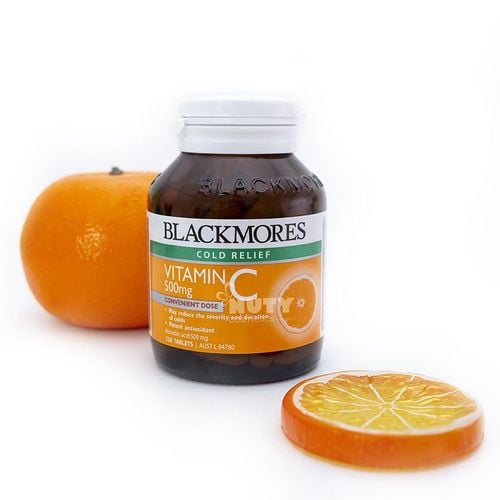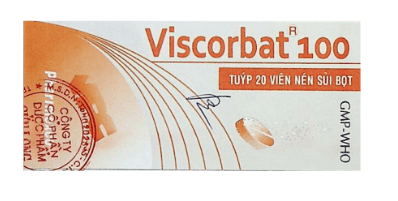This is an automatically translated article.
Vitamin C is a nutrient that plays an important role in our bodies. The body's need for vitamin C will change with age and gender. Here is some information about vitamin C for your reference.1. The body's need for vitamin C by age group and sex
The need to use vitamins of the body is very low but cannot be ignored because vitamins play an important role in the health of each person. The following is a reference to the need for vitamin C for subjects by age and sex:Children under 6 months old: 40 mg Children from 6 to 12 months old: 50 mg Children aged 1 to 12 months 3 : 15mg Children 4 to 8 years old: 25 mg Children 9 to 13 years old: 45 mg Teenagers 14 to 18 years old: Men 75mg, Women 65mg, Pregnant women 80mg, Women who are pregnant Breastfeeding 115 mg Adults over 19 years old: am 90mg, women 75mg, pregnant women 85mg, women in lactation 120mg Smokers need to add 35mg/day
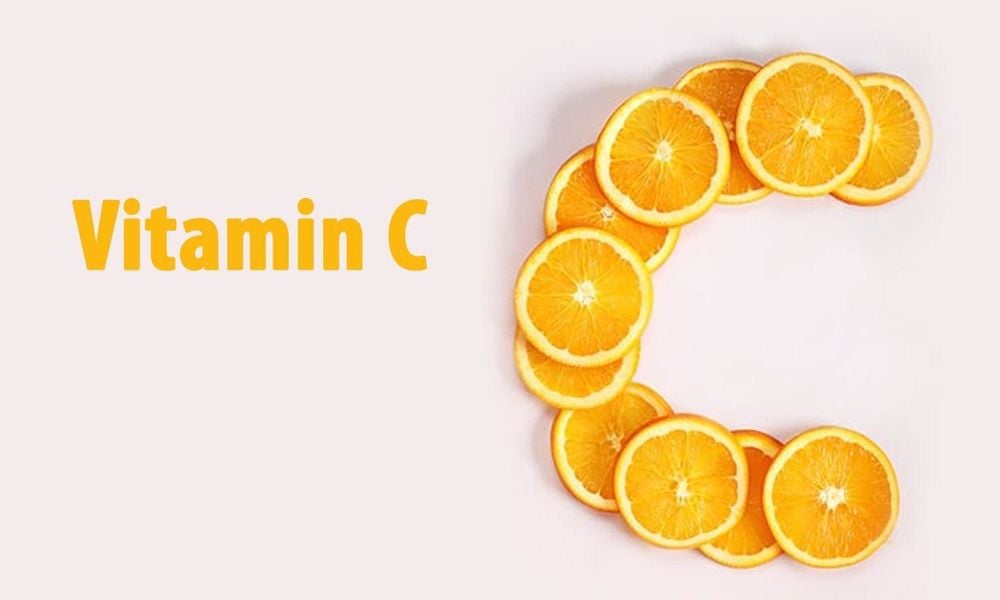
Nhu cầu sử dụng vitamin của cơ thể thưởng rất thấp nhưng lại không thể bỏ qua
2. The group of subjects at high risk of vitamin C deficiency
Vitamin C deficiency can cause serious health effects if not detected and promptly supplemented. Normally our body will store a amount of vitamin to compensate, but if the condition persists, then after about 1 month, symptoms will appear. People with vitamin C deficiency often have fatigue, irritability and gingivitis.Vitamin C is a nutrient that supports collagen formation and increases the connective tissue of cells. When the body lacks a certain amount, bruises, spots/purpura, joint pain, slow wound healing, horns and hairs will appear. Iron deficiency anemia is also influenced by vitamin C deficiency. Young children are at increased risk of rickets and lead to death if not detected early.
The following are the groups of subjects at high risk of vitamin C deficiency:
Passive and active smokers According to a number of studies that have evaluated the reduced concentration of vitamin C in smokers' plasma and cells, white blood cells than non-users. Therefore, when smoking, you are often advised to supplement with 35 mg of vitamin C to make up for the deficiency. And because of that, passive smokers will have even more reduced vitamin C levels. Therefore, it is necessary to avoid contact with smokers to not lose vitamin C passively.
Newborns do not use formula milk or breast milk Usually babies will be breastfed or drink formula milk to synthesize enough nutrition for the body. However, for some reason, the baby must drink condensed milk or pasteurized cow's milk. This is not good because the amount of vitamin C these milk provides is very low and undergoes boiling, so it is lost a lot.
People with a balanced diet Fresh fruits and vegetables contain vitamin C but are very small and will not be enough if you choose this as the only way to supplement. Therefore, a varied diet is often recommended to increase the body's ability to absorb vitamins. Most of us are prone to this error, maybe because we don't know it or because our food choices are limited. Especially for subjects who have to follow a strict diet, the risk of deficiency will be higher.
People with chronic diseases and malabsorption of vitamins People with malabsorption or bowel problems or cancer face an increased risk of reduced absorption of vitamins. In particular, patients with kidney disease who have to undergo hemodialysis and enter the end stage will also have low vitamin C levels.

Người hút thuốc lá thụ động và chủ động đều có nguy cơ bị thiếu vitamin C
3. The benefits of vitamin C to the body when supplemented with enough
Vitamin C plays an important role as an antioxidant and boosts the body's immunity. When vitamin C levels in the body are not kept stable, you will be at risk of cancer, heart disease, macular degeneration, cataracts and colds.Vitamin C helps reduce the risk of cancer Through its antioxidant role, vitamin C has the ability to prevent the risk of cancer. However, this is still not a definitive conclusion about the link between vitamin C deficiency and cancer risk. Therefore, vitamin C is only a part of helping to make the resistance better for other nutrients to work and have the opportunity to fight the risk of cancer, but not directly affect this disease.
Preventing the risk of cardiovascular disease In the studies on cardiovascular disease and vitamin C supplementation, there is still a lot of controversy due to inconsistencies. Studies to date have only found that people with low vitamin C levels have a higher risk of coronary heart disease and death. Therefore, the impact of vitamin C on patients with cardiovascular disease is very small.
Reduce the risk of macular degeneration and cataracts Vision loss due to macular degeneration and cataracts is common in the elderly. With antioxidant ability, scientists have hypothesized that vitamin C can reduce the risk of these two diseases. Currently, the results between the studies are conflicting, so it is difficult to conclude the use of vitamin C with these two diseases.
Therefore, vitamin C has not really been announced to prevent and reduce the risk of macular degeneration and cataracts. We can only use vitamin C to slow the progression of the disease temporarily.
Fight colds In general, studies on the use of vitamin C to prevent colds are effective, but not very high. The success rate in this study varies from subject to subject. But the use of vitamin C in the early stages and stages of the disease does not appear to be beneficial.

Nhiều nghiên cứu cho thấy vitamin C có tác dụng chống lại cảm lạnh
4. Foods that meet the needs of vitamin C
Vitamin C can be supplemented naturally through everyday foods. You can increase the use of sour fruits or some vegetables to provide more vitamin C. Cereals are usually not high in vitamin C, but breakfast cereals can meet the vitamin C needs of the body. .However, foods that are heated to high or stored for a long time will lose a large amount of available vitamin C. Here are some fruits and vegetables that can provide daily vitamin C:
Sweet red peppers: 95mg/half cup Orange juice: 93mg/cup Orange: 70mg/fruit Grapefruit juice: 70mg/cup Kiwi: 64mg / fruit Sweet green chili: 60mg/ half cup Strawberries: 49mg/ half cup Grapefruit: 39 mg/ half broccoli: 39 mg/ half cup Tomato juice: 33 mg/ cup Cooked cabbage 28 mg/ half cup Cauliflower: 26 mg/ half cup Baked potatoes: 17 mg/ half cup Raw tomatoes: 17 mg/ Spinach: 9 mg/ half cup
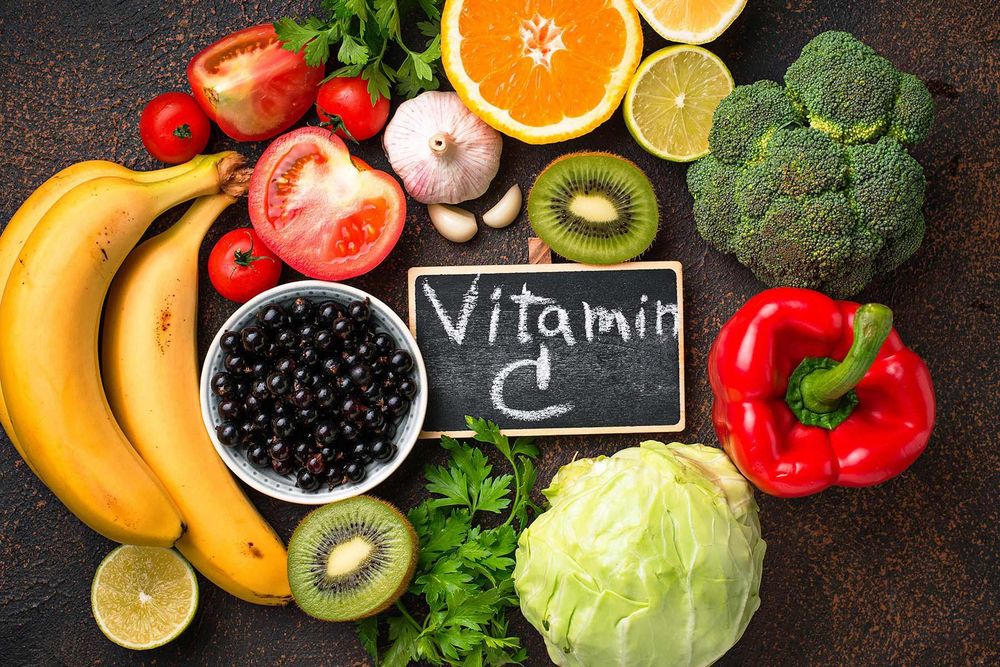
Một số loại thực phẩm giàu vitamin C
5. How to effectively supplement vitamin C
Vitamin C is often supplemented in the form of ascorbic acid, which is naturally produced from orange juice and broccoli. Therefore, you can add foods containing this acid to increase the body's ability to absorb vitamin C higher. In addition, you can find some nutrients in other forms to supplement vitamin C such as: sodium ascorbate, calcium ascorbate, bioflavonoid.6. Be careful when adding too much vitamin C
Although vitamin C has low toxicity, if consumed in excess, it will cause adverse side effects to the body. The most common and most common when excess vitamin C is diarrhea, nausea, abdominal cramps and digestive disorders. Postmenopausal women with diabetes, according to research, are more likely to die from cardiovascular disease if they have an excess of vitamin C.If you eat too much vitamin C, the ability to excrete oxalate and acid in the urine increases, increasing the risk nephrolithiasis. Vitamin C enhances the absorption of nonheme iron, so it is also a risk of iron overload, especially in patients with hereditary hemoglobinopathy where iron overload and tissue damage will take place.
Some results have been linked to vitamin C reducing the absorption of vitamin B12, potentially causing enamel erosion and allergic reactions. However, this is still quite controversial, so it needs to be studied and examined more carefully.
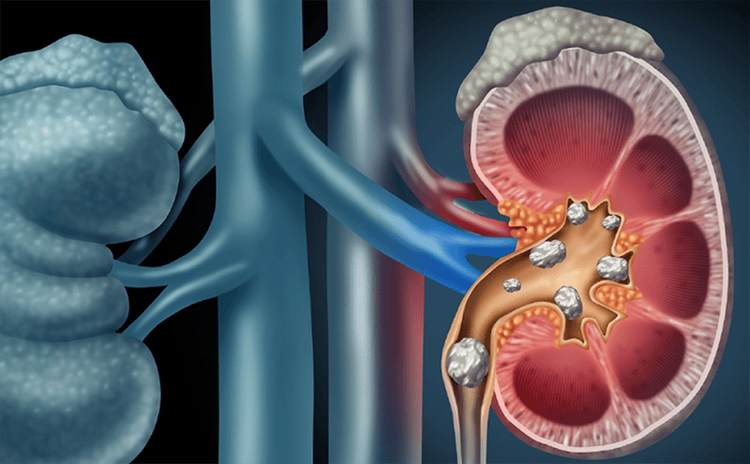
Nếu bạn ăn quá nhiều vitamin C khả năng đào thải oxalat và acid qua nước tiểu tăng cao sẽ tăng nguy cơ mắc bệnh sỏi thận
7. Some drugs that interact with vitamin C need attention
Some drugs will interact with vitamin C, so you need to be careful to avoid that interaction negatively affecting your health.Chemotherapy and radiation The safety level of vitamin C for antioxidants is still very controversial in the research process. Some results show that antioxidants from vitamin C protect tumors from chemotherapy and radiation, others show that antioxidants protect normal tissue when performing chemotherapy and radiation.
Because of the inconclusive interactions, patients with cancer should not take vitamin C supplements on their own. You should seek medical advice and support, as well as prescribe prescriptions when available. The need for vitamin C.
Hydroxy-methylglutaryl coenzyme A reductase inhibitors Vitamin C, when combined with other antioxidants, is likely to increase high lipoprotein levels due to niacin- simvastatin combination therapy. Currently, studies are still concerned about how this interaction affects lipid changes in the body. Therefore, you need to consult a specialist and monitor to ensure safety for your health.
The need for vitamin C in adults as recommended by the Institute of Nutrition has certain changes according to gender and health status from time to time. However, when using vitamin C, you should consult with experts to ensure the highest safety for yourself.
Please dial HOTLINE for more information or register for an appointment HERE. Download MyVinmec app to make appointments faster and to manage your bookings easily.
References: ods.od.nih.gov, healthline.com






